
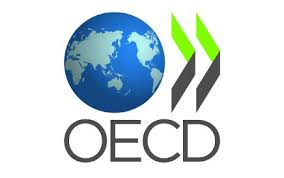
OECD includes UNWTO in the list of Development Assistance Organizations
The OECD Development Assistance Committee (DAC), representing thirty of the main donor countries, has included the World Tourism Organization (UNWTO) in the List of ODA- eligible International Organizations.
UNWTO’s inclusion in this list implies that countries´ financial contributions to the Organization such as membership fees can now be considered Official Development Assistance (ODA), which is funding that aims to advance economic development and welfare in developing countries. As such, contributions to the UNWTO can be part of the commitment of OECD DAC Members to dedicate 0,7% of Gross National Income to ODA. Furthermore, voluntary contributions for UNWTO activities and technical cooperation projects in any of the 146 ODA- beneficiary countries continue to be considered as well as ODA.
This landmark decision coincides with the celebration of 2017 as the International Year of Sustainable Tourism for Development, as proclaimed by the United Nations General Assembly.
The inclusion of UNWTO in the List, as well as the International Year 2017, are a clear recognition of the important contribution of sustainable tourism to development, peace and prosperity and thus to the universal 2030 Agenda and its 17 Sustainable Development Goals.
UNWTO very much welcomes this decision as it opens new opportunities to increase ODA flows for tourism, which currently only represents 0,14% of total ODA, despite representing 10% of world’s GDP and 1 in 10 jobs.
“This is a strong encouragement to UNWTO’s work in and commitment to advance sustainable, responsible and universally accessible tourism as a major contributor to economic development, environmental and cultural preservation and peace” said UNWTO Secretary-General, Taleb Rifai.
“Spain congratulates UNWTO and its Secretary-General, Mr. Taleb Rifai, for this outstanding achievement, which is an example of the fruitful collaboration of our country with the Organization”, said the Minister of Foreign Affairs and Cooperation of Spain, Mr. Alfonso Dastis.
The proposal was presented to OECD by Spain, UNWTO’s host country, and co-sponsored by Germany and the United Arab Emirates.
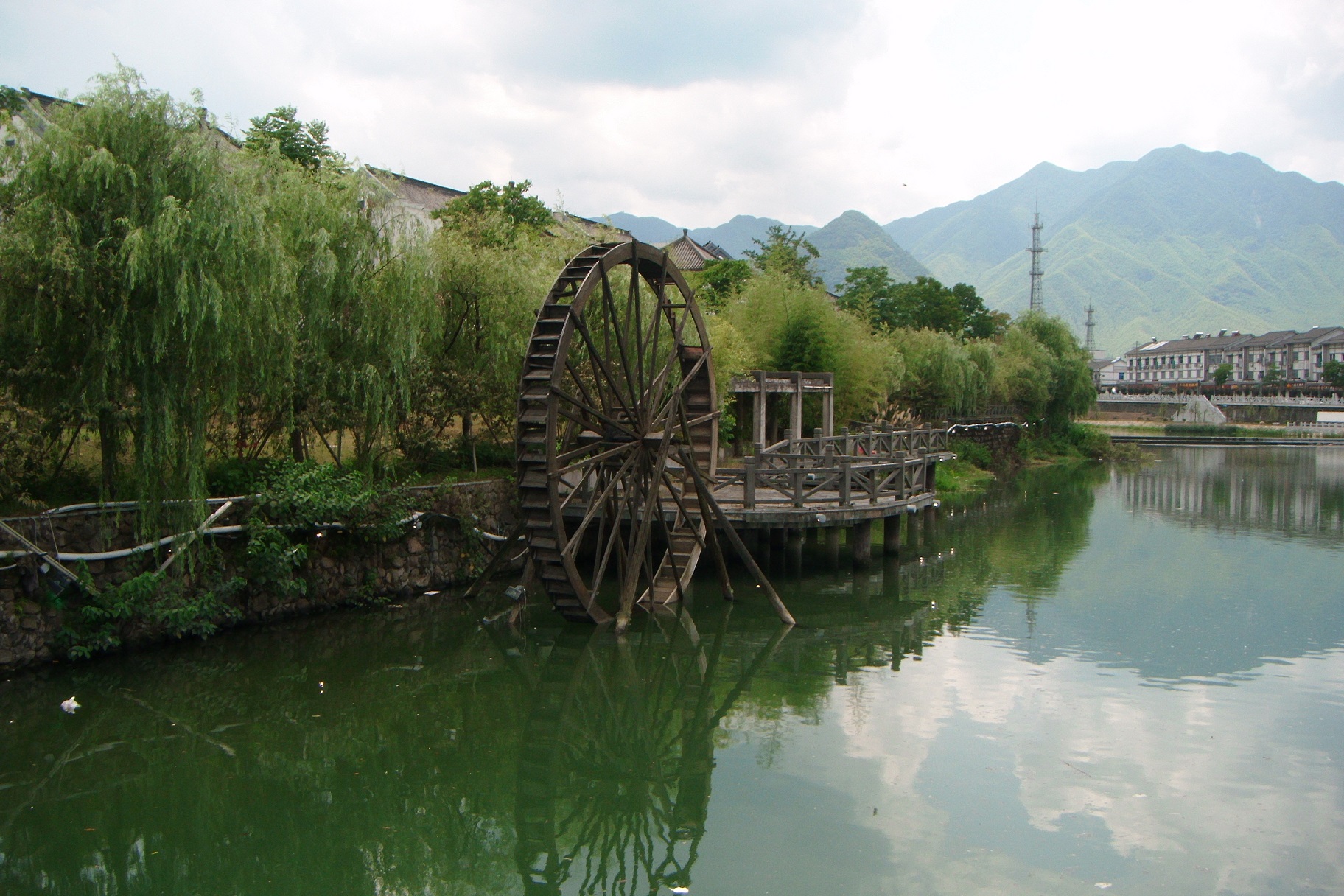
Rural Tourism: Sharing the Countryside
(Huzhou, China) – Interest in Asia Pacific rural tourism has spiked in recent decades, much like country
retreats did in 19 th -century Victorian England, and for similar reasons. The growing urban Asian
population is seeking to escape their pressure-filled, yet often mundane city life, and are increasingly
turning to leisure and relaxation holidays in the countryside.
However, the Asia Pacific faces a much different situation today than Thomas Cook in the 1850s. To
explore this organically rising phenomenon, Huzhou City, China, partnered with the Pacific Asia Travel
Association (PATA) and World Tourism Organization (UNWTO) to host The Second International Rural
Tourism Conference from 16-18 July 2017, in Anji County.
During the opening ceremony, PATA Chief Operating Officer Dale Lawrence presented the International
Rural Tourism Destination Base Award to Anji County Magistrate Chen Yonghua. Huzhou and the Anji
region are known for forested hills, bamboo varieties, white tea, rivers and reservoirs, pandas, and
calligraphy.
PATA Foundation Chairman Peter Semone then launched the UNWTO publication, “Report on
International Rural Tourism Development: An Asia Pacific Perspective”. The 200-page document
presents case studies on 14 rural tourism destinations in the Asia Pacific, including Huzhou.
Mr Semone, the report’s lead writer and editor in chief, said, “As 2017 is the International Year of
Sustainable Tourism for Development, we wanted this publication to focus on best practices and
successful strategies in Asia Pacific rural tourism development.”
Shen Mingqua, Secretary of the Anji County Tourism Committee, then welcomed the 300-plus delegates
from more than 15 countries to “The Home of Asia Pacific Rural Tourism”. Mr Mingqua presented Anji’s
achievements including the first certified rural tourism destination and the only recipient of the UN Habitat
Award.
“Innovation is key to our success…We are like a model for rural tourism ideas,” Mr Mingqua said, noting
that Anji is now trying to lure the MICE crowd. “We want businesses visiting here for meetings to stay and
see where their products come from and how they are made.” The tourism committee is also targeting
families for agricultural experiences.
Dr Ong Hong Peng discussed rural tourism products and pointed out that potential offerings crossed all
sectors. “The range of products is very diverse and can include almost everything,” the former Secretary
General of the Malaysia Ministry of Tourism and Culture stated. He presented a “six-part rural tourism
house” with rooms for affordable luxury, natural adventures, niche segments, festivals and events, MICE,
and culture and heritage.
Dr Peng then brought accommodation and lifestyle into the mix. “Homestays are important for rural
tourism, but they must be more vibrant…innovative…to add value…It can be in all ranges of
accommodation, as some people want privacy.” He suggested a “hybrid of a village stay and homestay”.
Airbnb China Vice President An Li stepped in with an alternative for rural tourism accommodation. “Airbnb
is ‘all for one’ tourism in a share economy. Distribution is better than hotels, and more hosts can
participate,” she said, adding, “Airbnb-ers stay twice as long as those in traditional accommodation. They
tend to be bigger spenders, and want good accommodation.” Mrs Li noted that spin-off employment from
Airbnb goes to local women, young people, and the elderly.
China’s Naked Retreats presents luxury in nature alongside memorable rural experiences that positively
impact communities. “Shanghai is crowded and smoggy, and people want to holiday outside the city,”
said Tolga Unan, the resort chain’s general manager. “We employ and work with the locals and learn
from them and about their lifestyle. Our aim is to preserve and complement, and not change.”
Conference Moderator and CCTV Host Bai Yansong injected that rural tourism is not just about the
countryside. “Urban areas are changing to become more rural-like, by embracing a green environment…It
is not just urban to rural…it’s a two-way street that connects and shares.”
The conference then shifted to a panel discussion on “Sharing the Countryside”, which carried over from
the keynote presentations. UNWTO Executive Secretary for the Asia Pacific, Xu Jing, observed that the
region is a latecomer to rural tourism, and it must adjust the old model to meet the new economic climate.
“The experience needs to be authentic. The setting may be the community, but the actual home is the
actual setting.”
Mr Jing added, “Visitors want to do what locals do, and they want to integrate their urban lifestyle with
rural aspects…Rural life is a dream for urbanites. They forgot what it’s like…listening to the sounds of
nature and seeing the stars.” He noted that rural people, who migrated to the city, often visit their
hometowns and even retire there.
Dr Liu Feng, Chief Advisor for the Beijing Davost Group, went further, stating, “City dwellers are envious
of those who visit or move back to rural areas.” He also picked up on Mr Yansong’s idea of “reverse
development”, noticing the growth in rural-type cities. “Rural is nostalgic, and people want to revitalize
traditional life,” he said. “They connect rural tourism with urban life. It’s more personal, community-like,
and simple.”
The discussion moved back to the countryside, as PATA Vice Chairman Chris Bottrill brought up
cooperation versus competition or “co-opetition”. “Having both improves the product,” he said, pointing to
authenticity of experiences and differentiation. “We should share approaches and what we learn within
and between countries.” As for challenges facing rural tourism development, Mr Bottrill said that when
working with rural communities, you need time, trust, and respect…“It’s not just ‘UNESCO’ that attracts
visitors.”
UNWTO Expert Committee Member Madam Xu Fan suggested “world heritage” have a more personal
touch, and looked to the next generation to create new innovative ideas. Regarding the pace of
development, she said, “Rural tourism is like planting and harvesting crops. It needs ongoing care, and
the focus must be on the farmer-tourist relationship and not just money for farmers. Rural tourism is about
rural lifestyle and not its components.”
UNWTO Senior Researcher Omar Nawaz also cautioned against fast development, as it affects quality.
“Planning is one thing, but implementation takes time. You need a long-term concept…a relationship
between rural and general tourism,” he said, and suggested learning from other’s mistakes. “Listen and
learn. Adapt to new demand. Focus on inclusive development, and develop from slow to fast. The
challenge for rural tourism is in developing too fast.”
Mr Semone compared rural tourism development in Europe to the Asia Pacific. “European rural tourism
has been continually developing for more than 100 years, during a period of large middle-class growth.
The Asia Pacific has only been on line for 20 to 30 years, but this presents an opportunity for a new Asian
initiative,” Mr Semone said. “Learn lessons from Europe, but make development unique to Asia.”
Mr Semone noted his belief that Asians are reluctant to innovate even though there are plenty of creative
people. “Asians tend to copy rather than try something different. They need a more Asian-centric
development model. Too often, Asian countries get caught up in the copycat stage, such as Laos. Let’s
do something different.”
Mr Semone also discussed the “Report on International Rural Tourism Development: An Asia Pacific
Perspective”. “This report aims to showcase the power that rural tourism has to help people escape
poverty, improve their livelihoods, and slow urban migration.”
The report defines “rural tourism” as a “distinct element of both sustainable and responsible tourism.”
Criteria include a rural location and activities that remain rural in scale, traditional in character, growing
slowly and organically, and connected with small-scale enterprises and local families.
Rural tourism may include niche tourism segments such as ecotourism, agro-tourism, and geo-tourism.
“Rural tourism is not a simple and easily identifiable market segment,” Mr Semone said.
Each of the report’s 14 case studies has a different theme, as the situations of their destinations vary.
However, all analyze policy and planning, product development, marketing and promotion, and social and
economic impacts. A closing discussion investigates key challenges, opportunities, and lessons learned.
“The case studies demonstrate that with the right circumstances and conditions, rural tourism can create
new sources of income at both the community and household levels,” Mr Semone said.
He stressed the necessity for a new type of PPP – people-public- private partnerships – in which all
stakeholders are represented. “This is a new concept that challenges the status quo of competitive
jealousies in favor of collective benefit.”
The report concludes that rural tourism destinations need to create responsible and sustainable business
plans and proactive marketing strategies that account for their specific situations. Mr Semone summed
up, “There are different paths to the same goal.”
Today, you’d be hard pressed to find a rural tourism package on Thomas Cook’s website, but more
foreign visitors are seeking an experiential holiday in secondary Asian destinations, and rural tourism
offers them another avenue for a responsible and authentic countryside stay.
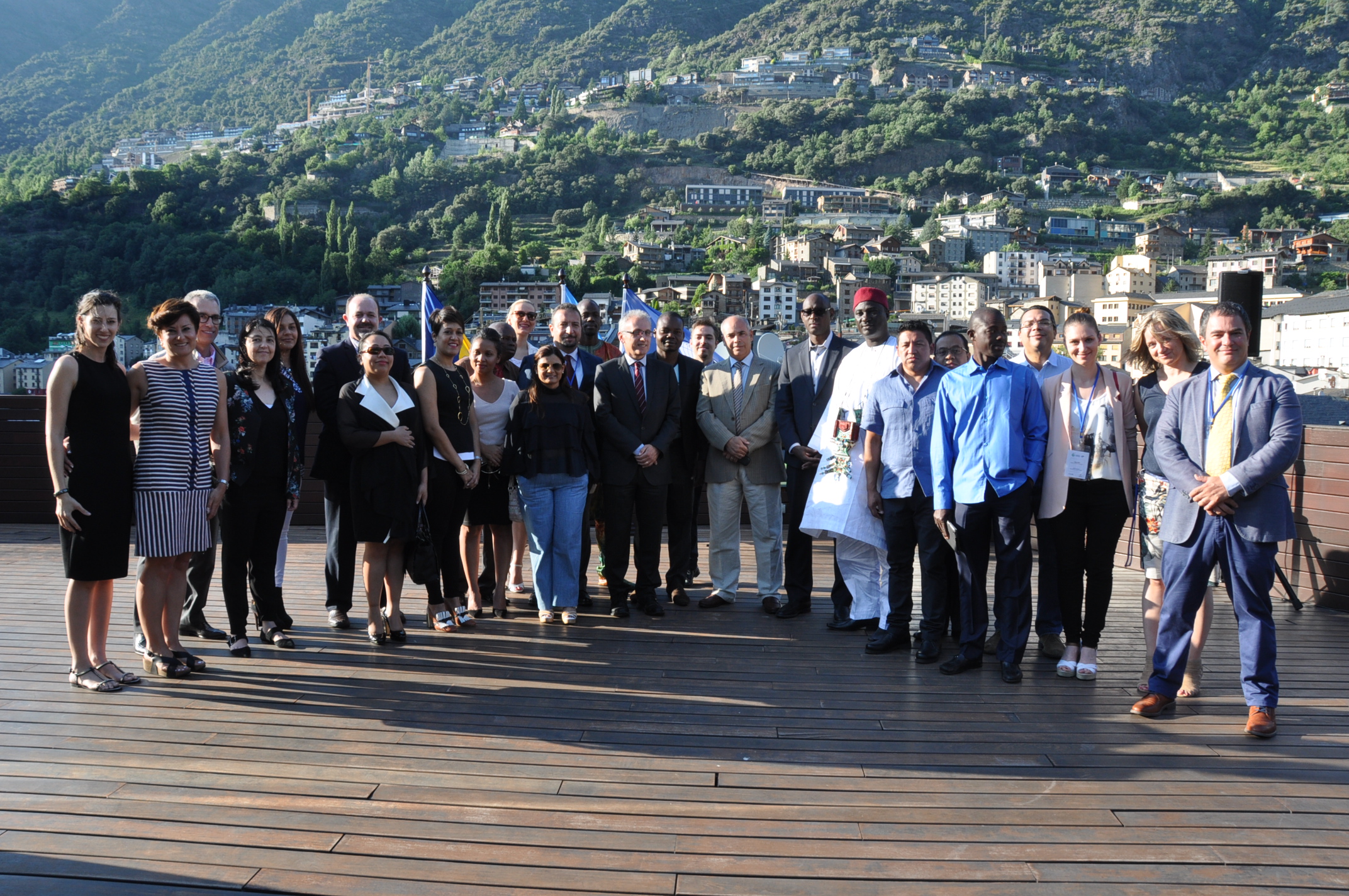
UNWTO.Themis Foundation trains 15 countries on crisis communications
Representatives from 15 Member States of the World Tourism Organization (UNWTO) took part in a three-day training course on crisis communications at the headquarters of the UNWTO.Themis Foundation in the Principality of Andorra. The training, organized by UNWTO and the UNWTO.Themis Foundation, aimed to build resilience at tourism destinations by creating capacity to develop and implement crisis communications strategies.
The Practicum on Crisis Communications included a revision of the different types of crisis that may affect tourism destinations – natural disasters, financial collapses, violent incidents or pandemics, among others – and recommended communications methodologies for each phase of a crisis – before, during and after.
The definition of protocols, the setting up of a crisis communications team, the development of communications materials and ready-to-use templates for each situation, and media relations were some of the topics included in the training.
The Practicum is an annual initiative that provides participants from Africa, the Americas and Europe with the opportunity to exchange views and experiences on various crisis situations and crisis communications cases.
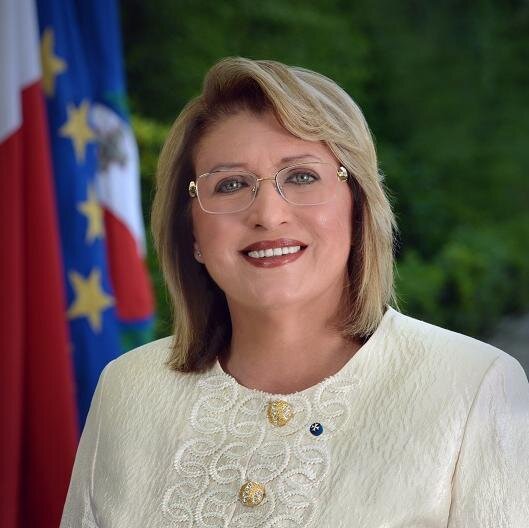
UNWTO appoints President of Malta as Special Ambassador of International Year of Sustainable Tourism for Development
Marie Louise Coleiro Preca, President of the Republic of Malta, has been nominated as Special Ambassador of the International Year of Sustainable Tourism for Development. The appointment took place at a ceremony held at the World Tourism Organization (UNWTO) Headquarters in Madrid.
The President of Malta, Marie Louise Coleiro Preca, underlined in her intervention the relevance of sustainable tourism as a means to build peace, social cohesion, and prosperity for all of humanity.
Cultural diplomacy, peace building and understanding were some of the components of sustainable tourism highlighted by the President of Malta. “Tourism shows us that positive experiences in new destinations can transform people’s perceptions, and give them a new understanding of different cultures,” she said.
“Tourism has the power to make us aware of our enriching diversity. In an increasingly globalized world, tourism provides opportunities for social solidarity, community empowerment, and potential peace building,” she added.
“When designating 2017 as the International Year of Sustainable Tourism for Development, the UN recognized tourism’s contribution to people and planet; to peace and prosperity. The Mediterranean is a melting pot of civilizations; a testimony of our origins and an inspiration for our future and having the President of Malta as a contributor to the International Year is a privilege,” said UNWTO Secretary-General Taleb Rifai.
The event served also to introduce the Mediterranean Tourism Foundation, of which the President of Malta is a Patron. Established in 2013, the Foundation aims at increasing the potential for sustainable tourism growth across the Mediterranean and to transform the Mediterranean into an area of peace, cooperation and prosperity by investing and promoting sustainable tourism.
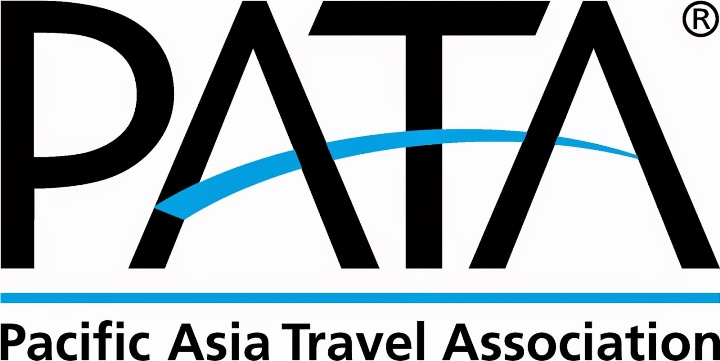
PATA maintains leadership in sustainability practices
BANGKOK, July 4, 2017 – PATA’s Bangkok headquarters has retained its EarthCheck Silver-level Sustainability Certification for a second consecutive year.
The Pacific Asia Travel Association (PATA) head office team worked with guidance from EarthCheck, a leading scientific benchmarking, certification and advisory group for the travel and tourism industry, in the collection and collation of relevant operational data on daily practices in order to be benchmarked against EarthCheck’s global sustainability standard.
The PATA head office received Bronze Benchmarked Sustainability Certification in 2015 and the Silver Certification was first awarded during the Association’s Annual Summit in Guam in May 2016. The EarthCheck benchmarking data embraces water and energy consumption, waste management, community contributions/activities and risk management as well as the use of paper and cleaning products.
PATA CEO Dr. Mario Hardy said, “Our head office in Bangkok has demonstrated impressive teamwork and applied a number of thoughtful initiatives in order to maintain Silver-level status. Year by year we are becoming more sustainable and environmentally friendly when we carry out our daily duties. I hope that our actions and achievements may continue to inspire our members to pursue sustainable and responsible business practices.”
Stewart Moore, CEO and founder of EarthCheck, stated that the Pacific Asia Travel Association continues to provide important leadership. “PATA was the first administration office in Thailand to achieve this hard-earned and coveted recognition and is also the first to maintain this status. In doing so, PATA is encouraging its neighbours and peers to consider their social and environmental impacts that may, inevitably, provide economic and social benefits.”
EarthCheck Certified is built upon the belief that effective scientific benchmarking puts rigour and transparency into business processes, benefitting all stakeholders in the long term. According to the programme’s protocols, members must achieve Silver for five (5) consecutive years before seeking Gold Status.
“PATA is committed to treading lightly on the planet and has, for many years, taken steps to reduce its environmental impact. The Association aims to inspire its members to act in the interests of society at large, protecting the very reason that we all love to travel. PATA encourages its stakeholders to promote its commitment to sustainability and social responsibility in the travel and tourism sector and in their daily lives,” added Dr. Hardy. “We must stretch our sustainability horizons in order to protect our planet for future generations.”
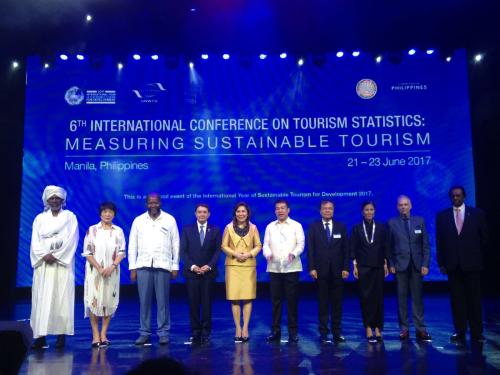
UNWTO Manila Conference sets roadmap to measure Sustainable Tourism
Nearly 1.000 experts from over 80 countries convened for three days (21-23 June) in Manila, The Philippines at the 6th International Conference on Tourism Statistics to lay the groundwork for an expanded statistical framework to measure sustainable tourism in its economic, social and environmental dimensions. The outcome ‘Call for Action on Measuring Sustainable Tourism’ represents a global commitment to sustainable tourism and the need to measure it through a consistent statistical approach recognizing that effective sustainable tourism policies require an integrated, coherent and robust information base.
A total of 973 participants from 88 countries, among which Ministers, Chief Statisticians, private sector and key decision makers from international organizations, gathered in Manila to discuss how to advance a rigorous, statistical approach to the measurement of sustainable tourism. To better measure is to better manage, and thus a common and robust set of data is critical for governments and stakeholders to design, implement and monitor effective sustainable tourism policies
“The Manila Conference constitutes a milestone for tourism measurement, not only by extending the current statistical standards beyond their economic focus to cover the social and environmental dimensions, but because it represents a global commitment to sustainable tourism and a recognition of its contribution to the 17 Sustainable Development Goals (SDGs) of the universal 2030 Agenda for Sustainable Development” said UNWTO Secretary General Taleb Rifai.
The Manila Call for Action reflects the collective vision and commitment to collaborate on the further development and implementation of a Measuring Sustainable Tourism (MTS) statistical framework. The document will be formally presented by the Secretary of Tourism of The Philippines, Mrs. Wanda Teo, to the UNWTO General Assembly, taking place in Chengdu, China, this September.
Sustainable tourism is understood as tourism that takes full account of its current and future economic, social and environmental impacts, addressing the needs of visitors, the industries, the environment and host communities. As such it is a continuous process and requires constant monitoring of impacts.
The Conference is part of the process to develop a framework to measure sustainable tourism, and builds upon and expands the two official UN statistical standards for measuring tourism adopted in 2008: the International Recommendations for Tourism Statistics 2008 and the Tourism Satellite Account: Recommended Methodological Framework 2008.
The Measuring Sustainable Tourism (MST) initiative has received full support of the United Nations Statistics Commission and is geared towards shaping and sharing a common understanding of how to measure the economic, environmental and social aspects of tourism across relevant spatial scales – global, national and subnational levels – while incorporating the possibilities opened by technological advancements and continuing to advocate for the sustainability principles of our sector.
The event is part of the calendar of official events of the International Year of Sustainable Tourism for Development 2017.
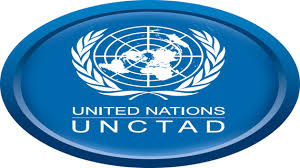
The Economic Development in Africa: Tourism
Reaching the peak of Mt Kilimanjaro, having a medical procedure in Tunisia, observing Rhino’s at an eco-lodge in Namibia, rafting the Zambezi River, these are all forms of a growing and eclectic tourism industry in Africa. This year, UNCTAD’s ‘Economic Development in Africa Report 2017’ focuses on ‘Tourism for transformative and inclusive growth’ and encourages African countries to harness the dynamism of the tourism sector.
The United Nations designated 2017 as the International Year of Sustainable Tourism for Development. The tourism sector has been praised for its capacity to stimulate economic growth through the creation of jobs and by attracting investment and fostering entrepreneurship, while also contributing, if properly harnessed, to the preservation of ecosystems and biodiversity, protection of cultural heritage and promotion of empowerment of local communities.
The UNCTAD report addresses some of the below key questions:
- How does tourism contribute to structural transformation and more inclusive
- How can linkages between tourism and other productive sectors be harnessed to create additional economic opportunities and provide sustainable livelihoods?
- How can the economic potential of intraregional tourism be fostered and better exploited through deeper regional integration?
- What is the relationship between tourism and peace?
The ‘Economic Development in Africa Report 2017’ will be launched on 5 July 2017
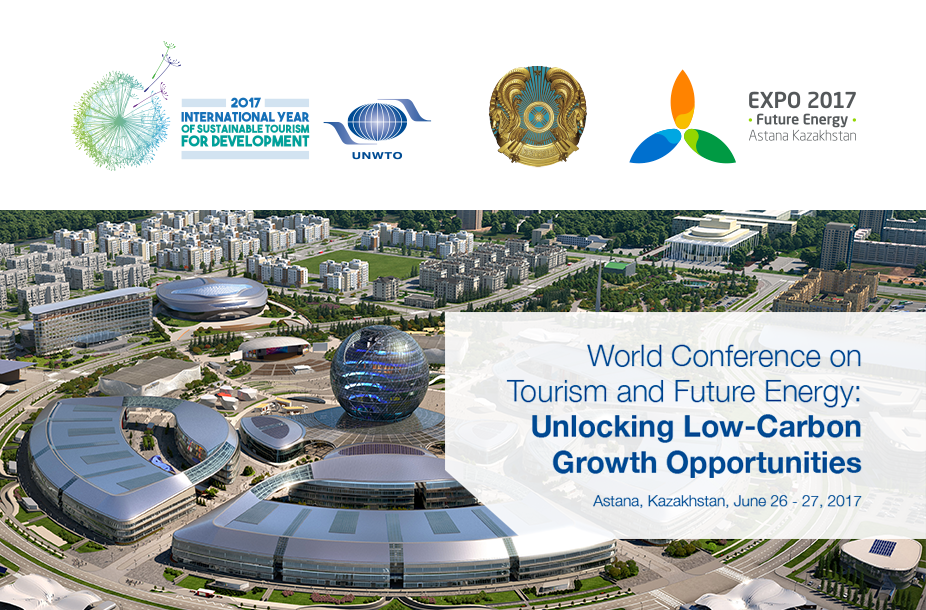
Tourism and future energy: committed to curb emissions
Under the title ‘Tourism and Future Energy: Unlocking low-carbon growth opportunities’, industry leaders and policy makers have convened in the Kazakh capital city of Astana to discuss the contribution of the tourism sector to reducing carbon emissions. The Conference is a joint initiative of Astana EXPO 2017 and the World Tourism Organization (UNWTO) with the support of the Ministry of Culture and Sports of Kazakhstan.
The event is held in the framework of the International Year of Sustainable Tourism for Development 2017 and aims to advance the commitment of the tourism sector to the global climate change agenda.
Discussions were focused on how to implement mitigation and adaptation measures in transport, accommodation and destinations in the scope of the Sustainable Development Goals – especially Goal 8 (Decent Work and Economic Growth), Goal 12 (Responsible Consumption and Production) and Goal 13 (Climate Action).
“One of the fastest-growing economic sectors nowadays, tourism represents 10% of the world’s GDP, 7% of global exports and 1 in every 10 jobs. But with growth comes responsibility as we work towards building a better future for a people and planet of prosperity and peace,” said UNWTO Secretary General Taleb Rifai.
“Tourism is estimated to account for 5% of global atmospheric CO2 emissions. We need to move towards a truly green tourism economy where growth is decoupled from environmental or cultural degradation”, he added.
“Tourism is a priority for Kazakhstan. Tourism is a driver of socio-economic development and we plan to increase the share of GDP from 1% to 8% by 2025,” said Askar Mamin, First Deputy Prime Minister of Kazakhstan, who requested UNWTO’s support to construct a sustainable tourism sector.
“The Prime Minister defined tourism as one of the pillars for the modernization of the national economy,” said Minister of Culture and Sports of Kazakhstan Arystanbek Mukhamediuly.
The Chairman of the Board of EXPO 2017, Akhmetzhan Yessimov, said: “The Expo is a unique opportunity to introduce Kazakhstan to the world and provide an impetus for comprehensive development of tourism”.
Curbing emissions, energy efficiency, the use of renewable energy and sustainable practices were underlined as key to ensure tourism’s contribution to the Paris Agreement. The Conference concluded on the need to:
1. Secure the commitment of all actors at national and local level (public and private sectors)
2. Develop policies and strategies at local level (cities and destinations)
3. Strengthen knowledge of how to change energy use patterns to generate investment opportunities
4. Move towards a green economy where growth is decoupled from the use of natural resources and creates green jobs
5. Fight climate change along the entire tourism value chain (transport to and within destinations, hospitality industries and activities)
6. Improve measurement for better management at global and local level
7. Adapt and act fast knowing there is no “one-fits-all” solution
8. Engage all stakeholders including local communities, staff and tourists and ensure the benefits of low-carbon growth are distributed to all
9. Build links with other sectors
10. Develop tourism products with low-carbon impact that can create jobs, especially for women and youth.

Manila Call for Action on Measuring Sustainable tourism
UNWTO issued the Manila Call for Action on Measuring Sustainable Tourism:
We, the representatives of tourism, economic, environmental and other related administrations, statistical institutes, international and regional organizations, the private sector, the academia and civil society, gathered at the 6th UNWTO International Conference on Tourism Statistics: Measuring Sustainable Tourism, organized by the Government of the Philippines and the World Tourism Organization (UNWTO) on 21-24 June 2017 in Manila, the Philippines, and on the occasion of the International Year of Sustainable Tourism for Development, 2017:
1. Acknowledge that sustainable tourism contributes to the three dimensions of sustainable development – economic, social and environmental – and to the 17 Sustainable Development Goals (SDGs) of the universal 2030 Agenda for Sustainable Development, as affirmed by the United Nations (UN) General Assembly when announcing the adoption of the International Year of Sustainable Tourism for Development, 20171.
2. Draw attention to the fact that tourism has become one of the fastest growing and most important economic sectors in the world, benefiting destinations and communities worldwide. With over 1.2 billion international overnight visitors and many more domestic visitors in 2016, the sector represents approximately 10% of the world’s GDP and 1 in 10 jobs globally. This growth comes with the need to uphold the foundations of prosperity for tourism destinations: the rich natural resources of our planet and its diverse cultural heritage.
3. Recall that sustainable tourism is defined as “tourism that takes full account of its current and future economic, social and environmental impacts, addressing the needs of visitors, the industry, the environment and host communities”2. Sustainable tourism should thus make optimal use of environmental resources, respect host communities and ensure viable, long-term economic operations so that benefits are equitably distributed among all stakeholders.
4. Recognize that sustainable tourism drives inclusive economic growth and social development by promoting entrepreneurship, creating jobs and fighting poverty, and can also encourage environmental protection, cultural heritage preservation, and stronger peace and mutual understanding around the world, whilst leaving no one behind.
5. Recall that with the adoption of several UN General Assembly resolutions on the importance of sustainable tourism as a tool for development3 the need to better understand and track progress towards a sustainable global tourism sector is more pressing now than ever.
6. Are mobilized by the strong conviction that credible and comprehensive data on sustainable tourism is key for effective evidence-based policies and management in order to surmount current challenges and capitalize on opportunities thereof.
7. Appreciate the achievements made in tourism measurement over the past decades, in particular the two official UN statistical standards for measuring tourism adopted in 2008: the International Recommendations for Tourism Statistics 20084 and the Tourism Satellite Account: Recommended
Methodological Framework 20085. Together, these statistical frameworks enable countries to produce data that is credible and comparable –across countries, over time and in concert with other standards. These frameworks help integrate and organize data for the purposes of deriving indicators such as tourism GDP.
8. Advocate for the development of a Statistical Framework for Measuring Sustainable Tourism (MST Framework) that extends these frameworks beyond their economic focus in order to incorporate environmental, social and cultural dimensions, across spatial levels (global, national and sub-national) and pay attention to temporal considerations.
9. Strongly believe that developing and implementing a MST Framework is the critical next step in understanding, analysing and supporting universal, cross-sectoral, sustainable tourism policies and practices that work from an integrated, coherent and robust information base.
10. Underline that the benefits of an MST Framework for decision makers and other stakeholders include:
a. The provision of a common language for discussing sustainable tourism within the tourism sector and with other key policy areas such as planning, industry, infrastructure, environment, social affairs, finance and central banks;
b. The capacity to compare the performance of the tourism sector and the impacts of different policies on a consistent basis with other sectors and in different destinations and countries;
c. The provision of a basis for improving co-ordination in data collection and compilation, as well as for improving institutional arrangements for the governance and management of statistics on sustainable tourism;
d. The provision of a single, coherent and comprehensive picture of the state of sustainable tourism and its trends, in all its dimensions and across all spatial scales.
11. Welcome the preliminary draft of the MST Framework as a launch pad with which to further the global discussion, and appreciate the significant progress achieved to date through pilot studies and other relevant work at international, national and subnational, including local levels, presented at this Conference. This reaffirms our conviction that an MST Framework is not only highly relevant but also feasible and most welcome.
12. Emphasize that information from the Framework will improve our ability to inform on vital and urgent policy questions on sustainable tourism; including questions such as:
How can the use of energy, water and other resources be optimized?
What are the trends in land use (including water and coastal areas) for tourism purposes?
What is the waste water and solid waste resulting from tourism activity and how is it dealt with?
What is the impact of visitors on cultural and heritage sites and how do they affect their preservation?
How to plan infrastructure needs with regards to transport, water, energy, treatment of waste and wastewater due to changing tourism patterns?
How is the tourism concentration in mature destinations evolving over time?
How do local communities benefit from tourism and how are they impacted by it?
What activities are being undertaken by tourism industries to maintain protected areas and other natural features (national parks, beaches) in good condition?
How does the environmental performance of the tourism sector compare to other sectors?
13. Acknowledge that designing and implementing an MST Framework is a priority in the context of measuring progress towards achieving the Sustainable Development Goals (SDGs) and in response to the needs of governments and tourism stakeholders.
14. Recall that the United Nations recognizes UNWTO as the appropriate organization to collect, analyze, publish, standardize and improve the statistics of tourism globally, and to promote the integration of these statistics within the sphere of the UN system6.
15. Appreciate the work of UNWTO as the leading UN Specialized Agency for tourism in leading the development of an MST Framework through the Working Group of Experts on Measuring Sustainable Tourism, under the auspices of the UNWTO Committee on Statistics and Tourism Satellite Account, and in close cooperation with relevant partners and experts.
16. Welcome the support from the UN Statistical Commission7, the highest decision-making body in statistics globally, in developing a Statistical Framework for Measuring Sustainable Tourism that includes indicators for sustainable tourism, measurement at sub-national level and pilot projects, as well as the development of a compilation guide for the Tourism Satellite Account and a technical note linking the Tourism Satellite Account and the System of Environmental-Economic Accounting.
17. Call upon all actors to facilitate the necessary means and resources for the development and subsequent in-country implementation of the MST Framework, note the opportunities to tap into the richness of data currently available and identifying gaps for producing any additional data that may be needed.
18. Stress the need for building capacity towards measuring sustainable tourism, taking into account the constraints and challenges of implementing statistical systems in developing countries.
19. Recognize that with regard to data collection all possible sources should be taken into account, including census, survey-based, administrative and big data.
20. Encourage that the Statistical Framework for Measuring Sustainable Tourism be presented to the United Nations Statistical Commission for its consideration in the UN Statistical Commission’s fifty-first session, to be held in 2020.
21. Emphasize that, beyond being a technical exercise, the development and implementation of an MST Framework is a strategic and ongoing endeavour, requiring wide and consistent stakeholder engagement, collaboration, inter-institutional coordination and political leadership.
22. Welcome the establishment by UNWTO of a special funding mechanism through voluntary contributions for the purpose of further development and implementation of the Statistical Framework for Measuring Sustainable Tourism8.
During this 6th International Conference on Tourism Statistics: Measuring Sustainable Tourism in Manila, Philippines, we unite political commitment and gather technical expertise to call for the development and implementation of the Statistical Framework for Measuring Sustainable Tourism that includes economic, environmental and social dimensions across relevant spatial levels (global, national and subnational). We call upon other governments and administrations at national and sub-national levels, international organizations, academia, private sector organizations and civil society to join our efforts.
We extend our sincere gratitude to our host, the Government of the Philippines, for its warm hospitality and excellent support and arrangements for the organization of the Conference, as well as its significant contribution to advancing the sustainable tourism agenda as a driver for sustainable development.
Manila, Philippines, 23 June 2017
REFERENCE
1 UN General Assembly resolution A/RES/70/193 adopted on 22 December 2015. See http://statistics.unwto.org/mst for further information and for links to the documents mentioned in this call for action.
2 Making Tourism More Sustainable – A Guide for Policy Makers, UNEP and UNWTO, 2005.
3 For example, resolutions A/RES/69/233 (19 December 2014) and A/RES/71/240 (21 December 2016) both of which encouraged the promotion of sustainable tourism, including ecotourism, for poverty eradication and environment protection, as well as resolution A/RES/70/1 (25 September 2015) on Transforming our World: the 2030 Agenda for Sustainable Development, which adopted the 17 Sustainable Development Goals.
4 Approved by the United Nations Statistical Commission at its 39th session (26-29 February 2008): https://unstats.un.org/unsd/tradeserv/tourism/manual.html. It revises and replaces the previous 1993 Recommendations on Tourism Statistics (1993 RTS) adopted by the Commission in 1993.
5 Approved by the United Nations Statistical Commission at its 31st session (29 February-3 March 2000) and replaced with the TSA: RMF 2008 (https://unstats.un.org/unsd/tradeserv/tourism/manual.html) at its 39th session (26-29 February 2008). The recommendations represent an update of a common conceptual framework for the design of the tourism satellite account that had been initially set up in 2000 by an Inter-secretariat Working Group convened by the United Nations Statistics Division, with the participation of the Statistical Office of the European Communities (Eurostat), the Organisation for Economic Co-operation and Development (OECD) and the World Tourism Organization (UNWTO).
6 Resolution A/RES/58/232 adopted by the United Nations (UN) General Assembly on 23 December 2003.
7 At its 48th Session (7-10 March 2017) during the discussion on the Report of the World Tourism Organization on tourism statistics and contained in Decision 48/115.
8 Such a special funding mechanism would operate under UNWTO’s Financial Rules and Regulations.
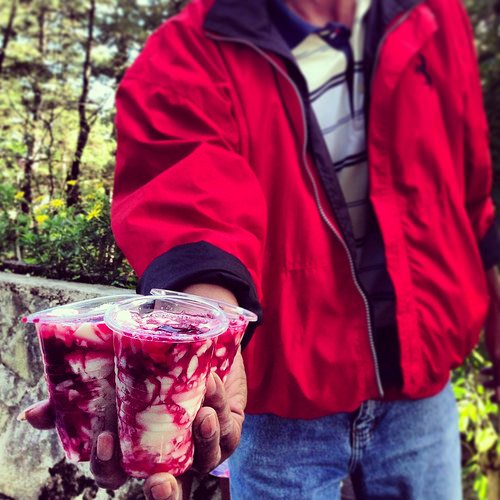
Tourism stats at the basic level in the Philippines
By Dean M. Bernardo, eTN Manila.
As delegates from 60 different countries gather in the Philippine capital of Manila for the 3-day 6th UNWTO International Conference on Tourism Statistics being held from June 21-24, 2017, how does an everyday Filipino worker in the tourism sector see the importance of statistics?
In the mountain resort town of Baguio, 250 kilometers (155.3 miles) north of Manila, tourism workers have a very simple perspective on figures to determine if every day is good for business.
Baguio was built in the early 20th century by American forces during the commonwealth period of the Philippines as a respite for its nationals during the hot and humid months from March to June. The city was built from the various log cabins under the soothing scent of thousands of pine trees with average dry temperatures of 22 degrees Celsius (or 72 Fahrenheit). In the later years, the city has been dubbed as the “Summer Capital” of the Philippines, as most Filipinos drive to the mountain roads to chill and relax.
Countless numbers of foreign and domestic tourists ascend to Baguio regularly, and this generates millions of dollars in revenue for the city and its more than 320,000 residents (as of 2010).
Nowadays, the city hosts thousands of young Koreans who stay for a longer period, availing themselves of learning the English language and other advanced studies offered in Baguio. Koreans now account for being the largest non-Filipino ethnic group in the city.
In the case of Steve, a 27-year-old sweetened tofu vendor who hails from the province of Pampanga in the low lands, Baguio gave him work opportunities when he had not found any in his hometown of Mexico or in Metro Manila.
At 19, after dropping out of school, he joined a friend to work as a mason’s apprentice in Baguio, where he later built his own family after meeting his current domestic partner in the city.
Nowadays, he earns a daily living selling strawberry-flavored sweetened tofu, locally called “taho,” to domestic and foreign tourists. Steve said, “Foreigners, especially Japanese and Koreans, love to buy taho for its unique taste.”
He said that there are good days when he finishes selling early, and there are days when he comes home with left-overs.
His livelihood is dependent on the number of tourists who flock to the city, and while he does not count how many usually come on any given day, it is important for him that they keep coming, because as long as tourists continue to visit, he will continue to make his living selling “taho.”
